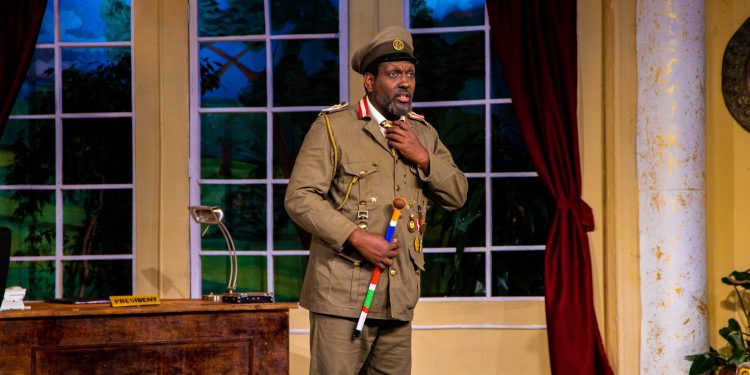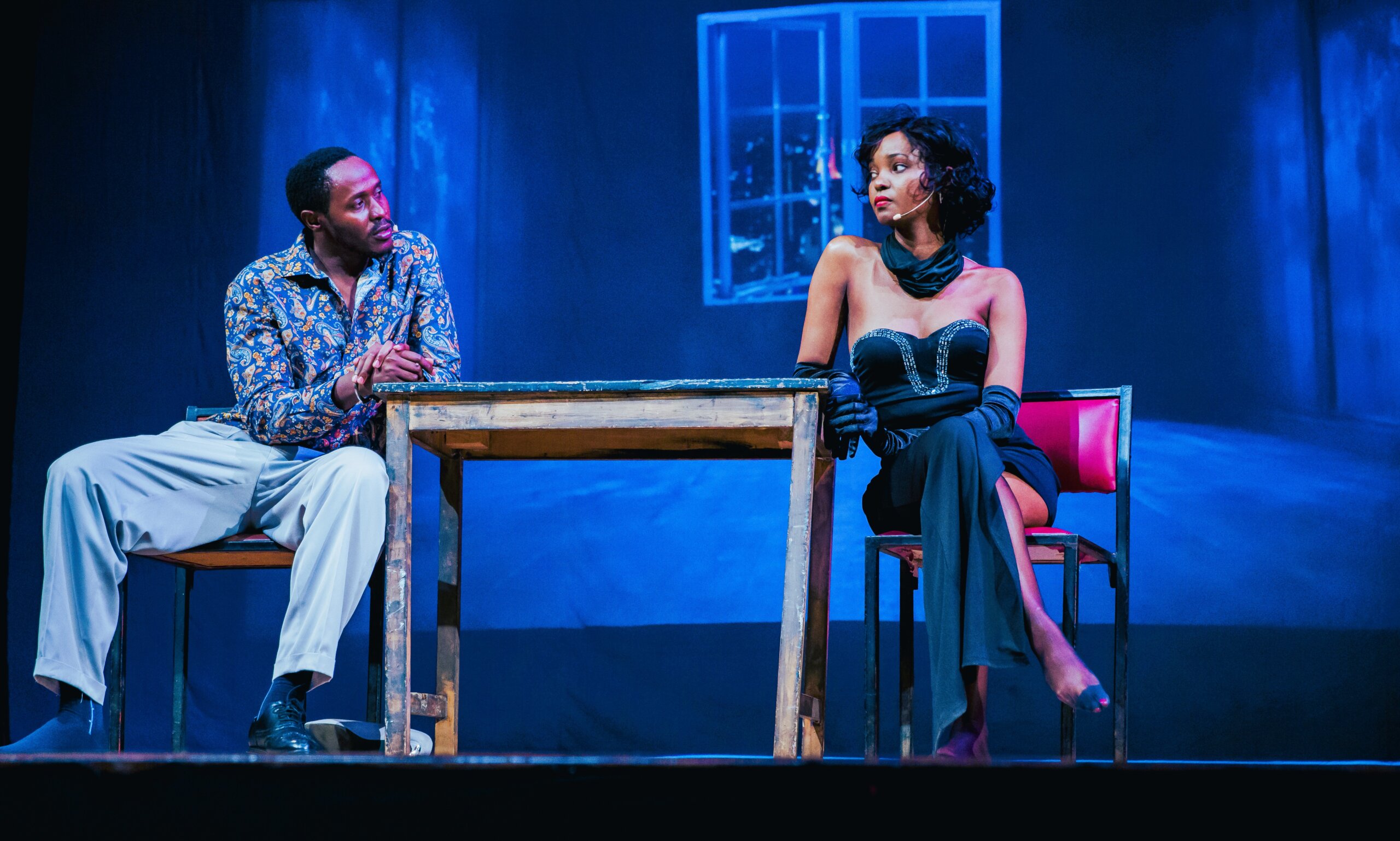Stuart Nash’s Mstinji, an adaptation of L’Avare, written by the legendary French playwright Molière, doesn’t quite fulfil its promise as far as what had been marketed is concerned. However, the play takes a serious jab at how old, rich men pry on girls young enough to be their daughters or their son’s girlfriends. Maybe, that is why the play’s tagline is “The discombobulated manual to getting a mubaba”. The term mubaba, popular in Kenya, denotes an older rich man who spoils young girls or young boys, with gifts and money, in exchange for sex and other favours.
Nash, Mstinji’s director has previously helmed plays like Jesus Christ Superstar, Grease – The Musical, Sarafina, and most recently, I Will Marry When I Want – based on Ngugi wa Thiong’os iconic banned play which was staged in Kenya in May 2022 for the first time after more than 40 years. I had lots of expectations for Mstinji, specifically because it had also passed through the hands of John Sibi-Okumu. My theatre tastebuds were primed for a spellbinding show when I heard that the legendary playwright and director was involved in the adaption process of this masterpiece.
In a nutshell, Mstinji is all about the painfully mean General Makasi who is the President of the Democratic Republic of the South Kenibia Zamswana. The general is so mean that one of his servants, Bagette (Kelvin Jeff) tells him that the Tik Tok influencers of Kenibia make viral videos saying that he is too mean to even pay attention. The play stars Sam Psenjen as General Makasi, Angel Waruinge as Mademoiselle de Venus aka the matchmaker, and Dru Muthure as the broker and Detective.

One of the good things about Mstinji is that it retains the stingy aspects of the original miser character in Moliere’s L’Avare only that Nash’s adaptation took the mubaba route, probably because that is what the director believed would resonate more with us Kenyans.
As a production element, the set design is unforgettable. The art department headed by Sylevnus Simiku did a commendable job. General Makasi’s office and house contain elegant and golden furniture, and the house’s finishings and even the wall artwork suggest affluence. It is unbelievable to notice that the general is willing to spend exorbitantly on decorating his house but claims to be broke when it comes to buying food or providing money for the maintenance of his car. He’s also willing to woo Maryanne, a young, beautiful, and well-educated lady. However but unwilling to spend a dime on her, contrary to what we all expect from a mubaba.
The casting director made a good great choice by blending veteran actors like Psenjen, Waruinge, and Muthure, with budding young actors such as Dadson Gakenga, Amani Mwasera, Sandra Wambui, Suzzane Karani, Jackie Mungai, Kelvin Jeff, Maureen Muthoni, and Gabriel Mukuya.
The only downside to this blend is that it created a high expectation in our minds in terms of acting. When Waruinge enters the stage, it’s all spectacular, the way she masters the French accent, and how smoothly she convinces the General to woo Maryanne, is purely entertaining. We are surprised when after the General steps out, Mademoiselle switches to a typical Nairobian sheng, saying how she is planning to dupe the general and finally fleece him of his money.
General Makasi’s son, Harrison mostly gets his acts together but there are numerous instances where we lose him due to his failure to stay true to his choices. For instance, when speaking with his father, Harrison’s speech is flavoured with a British accent, but even during that moment, he fails to maintain that especially when he starts whining right in his father’s face, about his stingy behaviour. When he speaks with his sister Elsie, we note a big difference. This discrepancy was unsettling because there was no clarity as to whether this choice was deliberate or whether the actor was oblivious to such details.
A character who also brightened our day were Baguette, the cook who also doubles as the driver. The way he capitalises on current viral Kenyan comedy, by using some phrases such as inky pinky ponky, as well as by mimicking the comedian Bena Wa Malines.

General Makasi’s stingy behaviour is loathsome to everyone, including his two children, Elsie and Harrison. Harrison even colludes with their housemaid to steal his father’s 7 billion shillings. Something that almost sends the general to his grave.
The use of a gun as the prop and the incorporation of the actual, nerve-wracking gunshot sounds is the most unexpected, and outstanding element in the production. I mean, the audience was having a good time watching Mstinji cry foul over his stolen money, until Detective Nyenje (Muthure), wanting to solve the case, barged into the general’s house. And when he fired the first gunshot, there was more panic and uproar in the audience than on stage.
I think the next time you are incorporating real gunshot sounds in your production, please warn us, we do not want our hypertension triggered on the day we decide to spend our weekend enjoying theatre.
Enjoyed this article?
To receive the latest updates from Sinema Focus directly to your inbox, subscribe now.











